Maybe you already know that Allan’s a bit of a Southside Johnny fan. Ok, a lot of a Southside Johnny fan. So, we decided to invite Johnny to contribute to the 2017 High Fives. And he did, with not one but four sets of High Fives chosen by our random category generator. That’s the kind of value you get at a Jukes gig. Take it away, Southside…
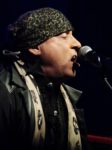
Steven Van Zandt
5 songwriting heroes
Cole Porter
Tom Waits
Steven Van Zandt
Bob Dylan
Smokey Robinson
5 places he’d play every night
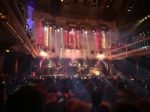
Paradiso Amsterdam
Paradiso, Amsterdam
Shepherd’s Bush, London
Birchmere, Alexandria, Virginia
Stone Pony Summer Stage, Asbury Park, NJ
Anywhere in Cleveland, Ohio
5 people he’d like to meet
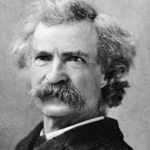
Mark Twain
Mark Twain
Big Bill Shakespeare
Barack Obama
Willie Dixon
My mother’s father
5 favourite harmonica solos
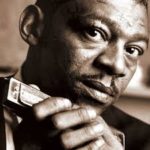
Little Walter
Big Walter, “Walking By Myself”,
Sonny Boy Williamson “Don’t Start Me Talking”,
Little Walter, “Tell me Mama” and “Lights Out”,
Paul Butterfield, “Born in Chicago” and a thousand others.
5 covers he hasn’t done yet
Way too many to list. Happy New Year!
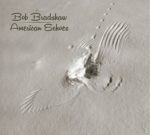 It’s a musical ‘all you can eat’ buffet; a long-time outsider’s view of American popular music exploring some of the high protein meat dishes, but meandering through some of the more delicately flavoured and textured dishes as well. To add to the complexity, it’s a set of songs created by a self-taught musician who also happens to have studied for a popular music degree. Sophistication and raw rock power are both on the menu for this musical feast. On his previous album, “Whatever You Wanted”, Bob Bradshaw saved the best (in my opinion) for last, closing the album with the wonderful road song, “The Long Ride Home”. On “American Echoes”, he opens with the lovely, acutely-observed “Exotic Dancers Wanted”; all of smalltown America is there as he melds Tom Waits with Bob Seger’s “Mainstreet” to create a quiet classic of a song about desperation, drugs, booze and pole-dancing. He even throws in a W.B. Yeats reference.
It’s a musical ‘all you can eat’ buffet; a long-time outsider’s view of American popular music exploring some of the high protein meat dishes, but meandering through some of the more delicately flavoured and textured dishes as well. To add to the complexity, it’s a set of songs created by a self-taught musician who also happens to have studied for a popular music degree. Sophistication and raw rock power are both on the menu for this musical feast. On his previous album, “Whatever You Wanted”, Bob Bradshaw saved the best (in my opinion) for last, closing the album with the wonderful road song, “The Long Ride Home”. On “American Echoes”, he opens with the lovely, acutely-observed “Exotic Dancers Wanted”; all of smalltown America is there as he melds Tom Waits with Bob Seger’s “Mainstreet” to create a quiet classic of a song about desperation, drugs, booze and pole-dancing. He even throws in a W.B. Yeats reference.
To keep the culinary metaphor on the boil, “American Echoes” is a smorgasbord of musical stylings, or a pick ‘n’ mix if prosaic is your preference. It ranges all the way from the out and out rocker “Weight of the World”, with its huge riff, two guitars and The Who stylings to the acoustic ballad “Stella” with a Chris Izaak guitar sound and a vocal that’s a dead ringer for Elvis Costello in lower-register ballad mode.
There’s a bit of lyrical invention as well, to match the musical melange. “My Double and I” is a modern take on the Jekyll and Hyde theme matched up with a laid-back New Orleans jazz groove (with a nod towards Steely Dan’s “East St Louis Toodle-oo”), while “Working on My Protest Song” combines the kind of rhythms Paul Simon discovered in Africa with a mildly sarcastic dig at musicians who opportunistically appropriate protest movements for their ends. And the list goes on.
The bottom line is that Bob Bradshaw has produced another very fine album indeed. “American Echoes” is packed with great lyrical and musical ideas and gets better with repeated plays.
“American Echoes” is released in the on UK Fluke Records on Friday October 20.
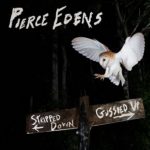 There’s an expression that always rings alarm bells when I read it in connection with musicians: genre-bending. And have you ever heard anyone actually use the expression in conversation? Anyway it manages to insinuate itself in to the press release for the Pierce Edens album “Stripped Down Gussied Up”, which is as contradictory as the title suggests; the arrangements have been stripped back to basics then topped off with a selection of ambient noises and studio trickery. It’s a bit like taking all the bodywork off your car, down to the chassis, then sticking a spoiler on the back end. Pierce has a voice that you might say is original and has character; it’s certainly idiosyncratic and I found it difficult to take over a whole album; you find yourself wanting to give him a bagful of consonants. To give you an idea of what I mean, he manages to out-Waits Tom Waits on his cover of “Mr Siegal”.
There’s an expression that always rings alarm bells when I read it in connection with musicians: genre-bending. And have you ever heard anyone actually use the expression in conversation? Anyway it manages to insinuate itself in to the press release for the Pierce Edens album “Stripped Down Gussied Up”, which is as contradictory as the title suggests; the arrangements have been stripped back to basics then topped off with a selection of ambient noises and studio trickery. It’s a bit like taking all the bodywork off your car, down to the chassis, then sticking a spoiler on the back end. Pierce has a voice that you might say is original and has character; it’s certainly idiosyncratic and I found it difficult to take over a whole album; you find yourself wanting to give him a bagful of consonants. To give you an idea of what I mean, he manages to out-Waits Tom Waits on his cover of “Mr Siegal”.
There were positives as well; “The Bonfire”, checking in at over six minutes, is powered by relentless, strummed acoustic guitar as the story of a doomed relationship unfolds with a lyrical hint at the Beatles’ “Norwegian Wood”. “I Can’t Sleep” runs on the same fuel with the addition of Kevin Reese’s over-driven electric guitar and a quickfire, almost breathless, vocal delivery from Pierce. If you like a bit of aural experimentation and a twisted vocal delivering dark tales of smalltown North Carolina, then this might be just the thing for you.
“Stripped Down Gussied Up” is released on Friday June 2.
 Keegan McInroe seems pretty relaxed about the whole process of touring, in fact he seems pretty relaxed all round. If you listen to his latest album, “Uncouth Pilgrims”, you’ll know that he’s travelled extensively and used his experiences to create some great songs. It’s obvious from the moment you open the door of The Lighthouse on Battersea Park Road that it’s not the ideal gig for a singer/songwriter. It’s Friday night, noisy and full of the ‘few beers after work’ crowd, but Keegan doesn’t seem too bothered; it’s a gig he’s done since his first tour here in 2004 even though the pub has changed hands and function since then. Having a quick chat before the gig, he’s remarkably unfazed by the audience, explaining that he’ll just play a few more covers than usual and some of the songs from the new album.
Keegan McInroe seems pretty relaxed about the whole process of touring, in fact he seems pretty relaxed all round. If you listen to his latest album, “Uncouth Pilgrims”, you’ll know that he’s travelled extensively and used his experiences to create some great songs. It’s obvious from the moment you open the door of The Lighthouse on Battersea Park Road that it’s not the ideal gig for a singer/songwriter. It’s Friday night, noisy and full of the ‘few beers after work’ crowd, but Keegan doesn’t seem too bothered; it’s a gig he’s done since his first tour here in 2004 even though the pub has changed hands and function since then. Having a quick chat before the gig, he’s remarkably unfazed by the audience, explaining that he’ll just play a few more covers than usual and some of the songs from the new album.
And that’s just what he did. His own material, mainly from the new album, was slotted fairly evenly into the two sets and included “Lumberjack Blues”, “Give Me the Rain”, “I Got Trouble”, “Flower Song for Barefoot Dancers”, “Nikolina” and “Lay Down”. The stripped-down versions worked beautifully live and the audience didn’t distract too much; there was even a fair smattering of applause around the room.
As for the covers, well, he didn’t put a foot wrong; he even played a couple of unexpected old favourites of mine. There were songs by the songwriting giants (Tom Waits, Townes Van Zandt, Willie Nelson, Neil Young and a tribute to Merle Haggard) and a few less predictable choices. Only three songs in, he made the brave choice of tackling Hoagy Carmichael’s “Georgia” and, despite a fairly noisy crowd, he made it work. The more esoteric song choices added the spice that made the evening unique; Stevie Ray Vaughan’s “Life by the Drop” and Warren Zevon’s “Carmelita” (both stories of addiction) introduced an element of pathos, while Muddy Waters’ “Champagne and Reefer” and Elmore James’ “Dust My Broom” (which closed the second set) gave Keegan the chance to demonstrate his blues licks.
If this gig had been in an established ‘listening room’, the audience chatter would have been hugely distracting, but it was a free gig in a local pub and Keegan took a pragmatic view of the situation, playing to the people who were interested and tuning out those who weren’t. His own songs are well crafted and worked perfectly in the stripped-down format. He’s also a really nice guy.
“Uncouth Pilgrims” is released on Friday May 27th
 It’s a bit like an eclipse; the perfect gig depends on the alignment of artist, venue and audience and it doesn’t happen too often, so it was a privilege to see Martin Harley and Daniel Kimbro play to a full house at St Pancras Old Church. Martin and Daniel got together originally in the US and, after touring together, made the album “Live at Southern Ground” in a single afternoon. So the logical next step was to tour in support of the album and that’s how they came to be playing a beautiful and acoustically perfect venue just behind the Eurostar terminal.
It’s a bit like an eclipse; the perfect gig depends on the alignment of artist, venue and audience and it doesn’t happen too often, so it was a privilege to see Martin Harley and Daniel Kimbro play to a full house at St Pancras Old Church. Martin and Daniel got together originally in the US and, after touring together, made the album “Live at Southern Ground” in a single afternoon. So the logical next step was to tour in support of the album and that’s how they came to be playing a beautiful and acoustically perfect venue just behind the Eurostar terminal.
Martin and Daniel display the relaxation on stage that comes from complete mastery of your craft. Instrumentally they’re both at the top of their game, but they both have great voices and they’re accomplished songwriters. They aren’t trying to prove anything, they just want to play (and maybe sell a few albums). Throughout the set they created a rapport and intimacy with the audience, telling self-deprecating stories about life on the road and Martin’s first corndog, eaten onstage during a festival gig.
And they played some music as well, covering his career from the eponymous 2003 debut up to “Southern Ground” and a few covers as well, including Richard Thompson’s “1952 Vincent Black Lightning”, the Leadbelly classic “Goodnight Irene” and that old Bible Belt favourite, Tom Waits’ “Chocolate Jesus”. Highlights; yep, there were a few of those. The second song in, “I Can’t be Satisfied” featured an enthralling Daniel Kimbro bass solo (I know, I’m praising a bass solo, but it probably won’t happen again for a long time) and “Blues at my Window” in D minor (the saddest of all keys) which built up to an incredible finish with what seemed like three Weissenborns playing together (a feat which was repeated at the end of “Chocolate Jesus”) at the end of the evening.
In the second set, “Goodnight Irene” was taken at a beautifully languorous pace with plenty of Weissenborn fills and the lovely “Winter Coat” took off when Daniel Kimbro’s harmonies kicked in Two superb sets followed by a bravura encore of “Nobody’s Fault but Mine”. It really doesn’t get any better; two virtuosi playing together to create an unrepeatable experience for the select few crammed into a beautiful acoustic space.
Just a word about the audience; I’d expected the usual blues crowd of male aficionados in their sixties, but the majority of the crowd was in the twenty-to-forty age group with even a scattering of under-tens. They were buying a huge amount of albums in the interval, including the vinyl version of “Southern Ground”, so maybe there’s hope for real music yet.
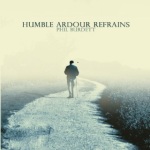 A long time ago, I really struggled with the musical concept that the most important thing wasn’t the notes, but the space between the notes. I was a bit literal and musically unsophisticated at that time, but I managed to get my head around the idea before it got me into any arguments. The reason I’m inviting you to have a laugh at my expense here is that Phil Burdett’s album “Humble Ardour Refrains” has some wonderful examples of using the space between the notes to create atmosphere and emotion. This is one of two albums that Phil’s releasing simultaneously on Drumfire Records (you can read about “Shaky Path to Arcadia” here) and if you take the two albums together, it’s an extraordinary achievement.
A long time ago, I really struggled with the musical concept that the most important thing wasn’t the notes, but the space between the notes. I was a bit literal and musically unsophisticated at that time, but I managed to get my head around the idea before it got me into any arguments. The reason I’m inviting you to have a laugh at my expense here is that Phil Burdett’s album “Humble Ardour Refrains” has some wonderful examples of using the space between the notes to create atmosphere and emotion. This is one of two albums that Phil’s releasing simultaneously on Drumfire Records (you can read about “Shaky Path to Arcadia” here) and if you take the two albums together, it’s an extraordinary achievement.
He’s used the same musicians (with the addition of flute and sax on this album from Paula Borrell) to produce two very different albums; musically, “Humble Ardour Refrains” has a more acoustic, folky vibe and there’s a much more confessional, intimate feel to the autobiographical material. I’m sure that everyone listening to this will pick out different songs that they love, but my instant favourite was “A Kind of Chalkwell Station Blue”; Russ Strothard’s melodic bass line works perfectly with John Bennett’s clipped guitar and Jack Corder’s congas to create a backing that rolls along seemingly effortlessly under Phil’s sub-apocalyptic vision of Southend and Canvey. When you add Paula Borrell’s meandering flute, the result is sublime. It’s a song that took me back to John Martyn at this very best.
If we’re talking comparisons (and we are), Tom Waits would be proud of the lo-fi stomp of “Jackleg Preacher” with its ‘ruffian choir’ and yuppie-vilifying lyrics; the band can do subtle, but they can also crank it up like a bar band. I should really mention “Chickenwire” as well; I can’t think of any other songwriter who can write a love song (unusual in itself for Phil) that includes the lines ‘This sick life worships morning tide & Satan’s sleeping on the shore, He’ll leave his bitter truths behind – callous, cruel & raw’.
As always, the metaphors range far and wide, from The Bible to French literature with musical references from Dexys to Dylan and Songdog dropped into the mix as well. “Humble Ardour Refrains” is a very personal album exploring childhood and lost innocence, London, absent friends (“Likes of Us”), some very dark times and the mental and physical place that Phil finds himself in at the moment.
Even if you ignore the simultaneous release of “Shaky Path to Arcadia”, this is an astonishingly good album from an artist who really should be much better known than he is. I can’t even choose between the two albums; you should just give yourself a treat and buy both.
“Humble Ardour Refrains” and “Shaky Path to Arcadia” are both out on January 29 on Drumfire Records.
 There’s only one band I’ve seen more often than I’ve seen Squeeze (answers in the comments box if you think you know who that is) and one of the interesting things they have in common is that they don’t have a precious attitude about the recorded versions of their songs. Chris Difford and Glenn Tilbrook have always been willing to try new arrangements; I must have heard half a dozen different versions of “Goodbye Girl” over the years and I never heard one I didn’t like. On this tour, Squeeze is basically Glenn’s band The Fluffers plus Melvin Duffy and they all play on the new album “Cradle to the Grave”; each member brings their own particular contribution to the overall sound. Simon Hanson is the archetypal drummer, full of energy and charisma, while his rhythm section partner, Lucy Shaw, dominates the right side of the stage with electric bass, double bass, ukulele and backing vocals. Stephen Large adds keyboards (including accordion and melodica) and Melvin Duffy plays just about anything with strings, including pedal steel and Weissenborn guitar. They’re all wonderful players (and singers) and add layer upon layer of instruments and vocals to the live sound.
There’s only one band I’ve seen more often than I’ve seen Squeeze (answers in the comments box if you think you know who that is) and one of the interesting things they have in common is that they don’t have a precious attitude about the recorded versions of their songs. Chris Difford and Glenn Tilbrook have always been willing to try new arrangements; I must have heard half a dozen different versions of “Goodbye Girl” over the years and I never heard one I didn’t like. On this tour, Squeeze is basically Glenn’s band The Fluffers plus Melvin Duffy and they all play on the new album “Cradle to the Grave”; each member brings their own particular contribution to the overall sound. Simon Hanson is the archetypal drummer, full of energy and charisma, while his rhythm section partner, Lucy Shaw, dominates the right side of the stage with electric bass, double bass, ukulele and backing vocals. Stephen Large adds keyboards (including accordion and melodica) and Melvin Duffy plays just about anything with strings, including pedal steel and Weissenborn guitar. They’re all wonderful players (and singers) and add layer upon layer of instruments and vocals to the live sound.
But what about Dr John Cooper Clarke as support? Well, he’s promoting his new album “Anthologia” and the idea of supporting a band’s nothing new; he did it hundreds of times during the punk era. Nearly forty years on, it still works; there are no musical rivalries between bands to worry about and JCC’s mix of manic recital and laconic links and gags is a perfect way to warm up for the Squeeze hometown gig. The old favourites are there, “Beasley Street”, “Evidently Chickentown” and “Twat” (including verses which weren’t in the original) as well as newer material like “Beasley Boulevard” dealing with the gentrification of inner cities. There’s more chat between poems than in the past and it’s usually hilarious, offering a novel and skewed perspective on everyday life. There’s the occasional stumble in the motormouth delivery, but that’s forgivable and he leaves the audience well and truly ready for the main event.
After an intro from Danny Baker, the set begins with Glenn Tilbrook wandering on stage while playing some intro music which morphs into “Hourglass”, with one of the catchiest of many catchy Squeeze hooks. As you might expect from two people with the experience of Glenn Tilbrook and Chris Difford, the set is perfectly paced, seamlessly weaving three-quarters of the new album in with the old classics and a few surprises. There’s a double hit of nostalgia on this tour as well, because the “Cradle to the Grave” material is set in the early seventies and a few of the songs are already familiar to the audience.
The quality of the band and the range of instruments they play allows for an incredibly varied set musically and visually; everyone sings and they’re able to vary the dynamics of the set by having the entire band along the front of the stage (and even into the audience) a couple of times for a more intimate acoustic feel. The performances are all absolutely spot on but there’s a hugely contagious enthusiasm at play as well. Everyone on stage is having a great time, and who wouldn’t, working your way through some of the finest pop songs ever written. There’s even a couple of non-originals too; The Tom T Hall classic “Harper Valley PTA” gets an energetic run through while Chris takes a lead vocal on a laconic version of Tom Waits’ “I Don’t Wanna Grow Up”. As for the hits, “Hourglass”, “Is That Love?”, “Another Nail in my Heart”, “Tempted”, “Pulling Mussels from the Shell” and “Up the Junction” are all fairly close to the originals while an intimate hits section in the middle of the set has a zydeco version of “Slap and Tickle”, an acoustic version of “Goodbye Girl” with congas, and stripped back acoustic version of “Black Coffee In Bed”.
Hearing those catchy, inventive melodies and clever but under-stated lyrics again is a reminder of the importance of this band to a whole generation in the UK, evoking a time when life wasn’t necessarily better but it was a lot simpler and the soundtrack was superb. You still have five chances to see them on the UK leg of their tour and “Cradle to the Grave” is available now as well. This might just be the time to re-acquaint yourself with two of British pop’s finest writers.
And here’s a coincidence; the only band that I’ve seen more times than Squeeze has two members who are big fans of Chris and Glenn. Who could they be?
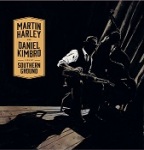 I don’t know if it’s a coincidence or if this is going on all the time, but this is the second album we’ve reviewed in two weeks that was recorded live at Southern Ground in Nashville. Martin Harley, roots acoustic and slide maestro has teamed up with upright bass player Daniel Kimbro to revisit some of his own back catalogue and rework a few classics as well. Just to add a little pressure to the situation, they decided to record the whole album in a day. Now there are a couple of ways you can look at a project like this. You could see it as an easy way of knocking out an album without having to write any new material, but it’s obvious from the opening sitar-like slide and menacing bowed double bass of “Cardboard King” (from the “Mojo Fix” album) that this is the real thing; it’s two craftsmen giving a masterclass in acoustic blues arrangement and playing, and it sounds like they just happen to be having a lot of fun while at the same time. “Live at Southern Ground” also serves as a great example of the variety and dynamic range you can produce from two players and two voices, especially when they’re as good as this.
I don’t know if it’s a coincidence or if this is going on all the time, but this is the second album we’ve reviewed in two weeks that was recorded live at Southern Ground in Nashville. Martin Harley, roots acoustic and slide maestro has teamed up with upright bass player Daniel Kimbro to revisit some of his own back catalogue and rework a few classics as well. Just to add a little pressure to the situation, they decided to record the whole album in a day. Now there are a couple of ways you can look at a project like this. You could see it as an easy way of knocking out an album without having to write any new material, but it’s obvious from the opening sitar-like slide and menacing bowed double bass of “Cardboard King” (from the “Mojo Fix” album) that this is the real thing; it’s two craftsmen giving a masterclass in acoustic blues arrangement and playing, and it sounds like they just happen to be having a lot of fun while at the same time. “Live at Southern Ground” also serves as a great example of the variety and dynamic range you can produce from two players and two voices, especially when they’re as good as this.
The non-originals on the album demonstrate Martin and Daniel’s interpretative abilities; “Goodnight Irene” is slowed down to an almost funereal pace with plenty of room for slide fills and raw emotional vocals while Tom Waits’ “Chocolate Jesus” is taken at an almost frantic pace and features a solo which build and builds to the point where you wonder how many Weissenborns Martin’s actually playing. Blind Willy Johnson’s “Nobody’s Fault but Mine” sticks much more closely to the original (well, a lot closer than the Zeppelin version). Of the songs from Martin’s excellent “Drumrolls for Somersaults” album, the lovely “Winter Coat” is taken at a slower pace and works well in a stripped-down version with perfect harmonies from Daniel, while “Honey Bee” becomes a fast country blues as a contrast to the original rockabilly version, and “Love in the Afternoon” has a greater emphasis on the Django Rheinhardt stylings than the original.
And then, when you think it’s all over (spoiler alert), check your time display (or just look at your vinyl) because there’s a hidden track. It’s a new take on “Blues at my Window” from the 2008 “Grow Your Own” album with Martin displaying his slide virtuosity while Daniel’s bowed bass moves from the growling, menacing bottom end up into the cello range to supply counter melodies. If you want a reason for making the album, this is it; there’s a song framework in place, but it’s all about the two players finding space to make their own creative contributions, and they do it to perfection.
“Live at Southern Ground” has all the intimacy of a live performance in a small venue. It’s a bit like looking through a crack in the door to see what musicians do when they think no-one’s watching or listening. Luckily, this time they decided to share it with the rest of us.
“Live at Southern Ground” is out on September 25th on Del Mundo Records (CD, Vinyl and download).
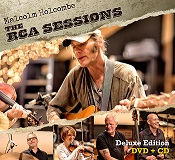 OK, let me say this right up front; this album isn’t for everyone, but you could say that about Tom Waits, Neil Young and Bob Dylan and it hasn’t done them any harm. Malcolm Holcombe’s voice is an acquired taste but if you already have a taste for anyone mentioned above then it wouldn’t take a lot of acquisition. It’s the voice of a man who’s lived a life and seen a lot of dark sides; it’s the voice of a man who gargles with gravel, spits sparks and tells stories of how life is, not how you think it should be. His music has roots in blues, folk and country but it’s not really any of these; it’s a strand of Americana which weaves in all of these influences without falling neatly into any of them.
OK, let me say this right up front; this album isn’t for everyone, but you could say that about Tom Waits, Neil Young and Bob Dylan and it hasn’t done them any harm. Malcolm Holcombe’s voice is an acquired taste but if you already have a taste for anyone mentioned above then it wouldn’t take a lot of acquisition. It’s the voice of a man who’s lived a life and seen a lot of dark sides; it’s the voice of a man who gargles with gravel, spits sparks and tells stories of how life is, not how you think it should be. His music has roots in blues, folk and country but it’s not really any of these; it’s a strand of Americana which weaves in all of these influences without falling neatly into any of them.
“The RCA Sessions” is a retrospective with a difference. Malcolm Holcombe has picked out sixteen songs from the period 1994-2014 and re-recorded the lot live in the RCA Studios in Nashville, while filming the process for a CD/DVD package. The band for the sessions was Jared Tyler (dobro, electric guitar, lap steel and vocals), Dave Roe (upright bass and arco), Tammy Rogers (fiddle, mandolin and vocals), Ken Coomer (drums and percussion) Jelly Roll Johnson (harmonica) and Siobhan Maher-Kennedy (vocals), all regular contributors to Malcolm’s work, plus Maura O’Connell who duets on the final track, “A Far Cry from Here”.
This collection weaves its way through various instrumental settings, from the intimate Malcolm Holcombe/Jared Tyler configuration on “Doncha Miss that Water” (with a hint of Jackson Browne and David Lindley) to the full country band sound of “My Ol’ Radio”, the riff-based country rock of “To Drink the Rain” and the two songs featuring Jelly Roll Johnson’s harmonica, “Mister in Morgantown” and “Mouth Harp Man”.
There’s a melancholy lyrical feel to most of the album, from the mournful mood of “The Empty Jar” to the world-weary nostalgia of “Early Mornin’” and “Goin’ Home”. There’s a bit of social comment (“Down the River”) and even a parable (“I Call the Shots”), showing a wide range of subjects and lyrical styles. The imagery is never ornate or flowery; this is the poetry of everyday (and sometimes bone-grindingly hard) life; warts ‘n’ all with no airbrushing, but also incredibly powerful, honest and moving.
The songs on “The RCA Sessions”, selected from the work of twenty years, are strong, potent and evocative and paint a picture of someone who’s lived a life and just managed to survive it. At times you feel he squeezes so much of himself into the songs, you wonder if he can make it to the bridge, never mind to the end of the song, but you could often say that about Neil Young, Tom Waits and Bob Dylan as well. Anyway, Lucinda Williams and Justin Townes Earle are fans and I’m sure their recommendation counts for a lot more than mine.
“The RCA Sessions” is out on June 22 on Singular Recordings/Gypsy Eyes Music.
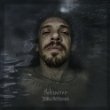 If you happen to have dipped a toe in the pool that is the British blues scene recently, you may have noticed that there are some very snappy critters swimming there waiting for the unwary. As with any scene that’s out of the mainstream, it’s inevitable that cliques develop, a fact that isn’t helped by too many performers chasing too few fans. It’s a classic supply and demand situation. As well as reducing the cash available to performers, it creates a situation where greed and selfishness seem to be excusable and some of those critters in that pool are piranhas. You can hear accusations of nepotism, award-rigging and other bits of nastiness, but the worst thing you can do is to question someone’s authenticity, which is ironic given that the players who are currently really successful are imitating the players from the 60s and 70s who imitated the original blues artists from the 30s and 40s.
If you happen to have dipped a toe in the pool that is the British blues scene recently, you may have noticed that there are some very snappy critters swimming there waiting for the unwary. As with any scene that’s out of the mainstream, it’s inevitable that cliques develop, a fact that isn’t helped by too many performers chasing too few fans. It’s a classic supply and demand situation. As well as reducing the cash available to performers, it creates a situation where greed and selfishness seem to be excusable and some of those critters in that pool are piranhas. You can hear accusations of nepotism, award-rigging and other bits of nastiness, but the worst thing you can do is to question someone’s authenticity, which is ironic given that the players who are currently really successful are imitating the players from the 60s and 70s who imitated the original blues artists from the 30s and 40s.
Ok, so here’s where that was all heading; I’ve been listening to an album by John Fairhurst. The album’s called “Saltwater” and it’s not full of tasteful imitations of Clapton playing “Further on Up the Road” or “Key to the Highway”; the inspiration here comes from Howlin’ Wolf, Muddy Waters, Little Walter and many others. The smoothness has been filtered out and this goes back to the raw earthiness of early country blues and Chicago electric blues.
John Fairhurst is originally from Wigan; he now lives in Bristol and recorded this album in Bristol and London with the help of Toby Murray (drums), Joe Strouzer (harmonica and vocals), Emma Divine (vocals), Tim Loudon (bass), Luke Barter (bass), Jago Whitehead (drums & percussion), Phil Jewson (piano), Saul Wodak (guitar effects) and Alex Beitzke (bass). I have a little confession to make about the album; on the first listen, I was halfway through before I actually started to get it (during the guitar solo on “I’m Coming Home”, actually). I blame it on the previous review I did, which was a very cleanly-produced singer-songwriter and it took a while to move from that to the over-driven guitar, wailing harmonica and Tom-Waits-dukes-it-out-with-Mark-Lanegan vocals. So let’s go back to the start.
The two opening songs, “Breakdown” and “Who You Fooling” get things off to a raucous start with plenty of amped-up slide and harmonica to get things rolling before the album’s only cover, the Mississippi John Hurt song “Pay Day”, which is much gentler, using the old country blues devices of repeated lines and call and response with the help of the Dean Street Choir. There’s even a sneaky little Eric Clapton reference at the end. “More More More” and “Time Goes By” are rooted in the rural, country blues tradition, the first having a UK skiffle feel while “Time Goes By” could be Tom Waits with the badly-tuned pub piano accompaniment.
You couldn’t really describe “I’m Coming Home” as blues; it’s a mutant Jimi Hendrix/Neil Young hybrid with “Voodoo Chile”-style riff and fill playing in the verses and a Shakey-style solo from the “American Stars and Bars” era. It’s the first of the album’s epic pieces. “No Shelter” is another elemental piece built around a simple (but loud) guitar riff and a reasonably good choice for the album’s first single while “Black Cat” is pure Muddy Waters; it’s a straight-ahead twelve-bar with belting harmonica and that always sounds good to me. So, more of the same to finish the album off?
No way; the penultimate song, written by the whole band, is “Dance in the Pines”, a mad surf-punk piece which splices DNA from The Cramps, Dick Dale and The Ventures. It’s off the wall and it’s brilliant. The album’s closer and title track, “Saltwater” is the magnum opus and absolutely has to be the last track; it wouldn’t be as effective anywhere else on the album. The song, which is a restyling of the Robert Johnson “Crossroads” story substituting the ocean for Clarksdale, has the singer refusing to shake hands with The Devil. It’s an epic which starts with acoustic guitar and vocal (slipping into a Wigan accent) which builds through a rural bluegrass-tinged to a kitchen-sink finale featuring Emma Divine delivering a vocal which easily equals Clare Torry’s famous performance on “Great Gig in the Sky”. And it’s the last track on the album because you can’t follow that; job done.
If you’re sick of hearing second and third generation blues revivalists recycling smooth guitar licks and bland vocals (no, I’m not naming names) then this could be just the album for you; don’t file under easy listening.
Out now (JF005).


